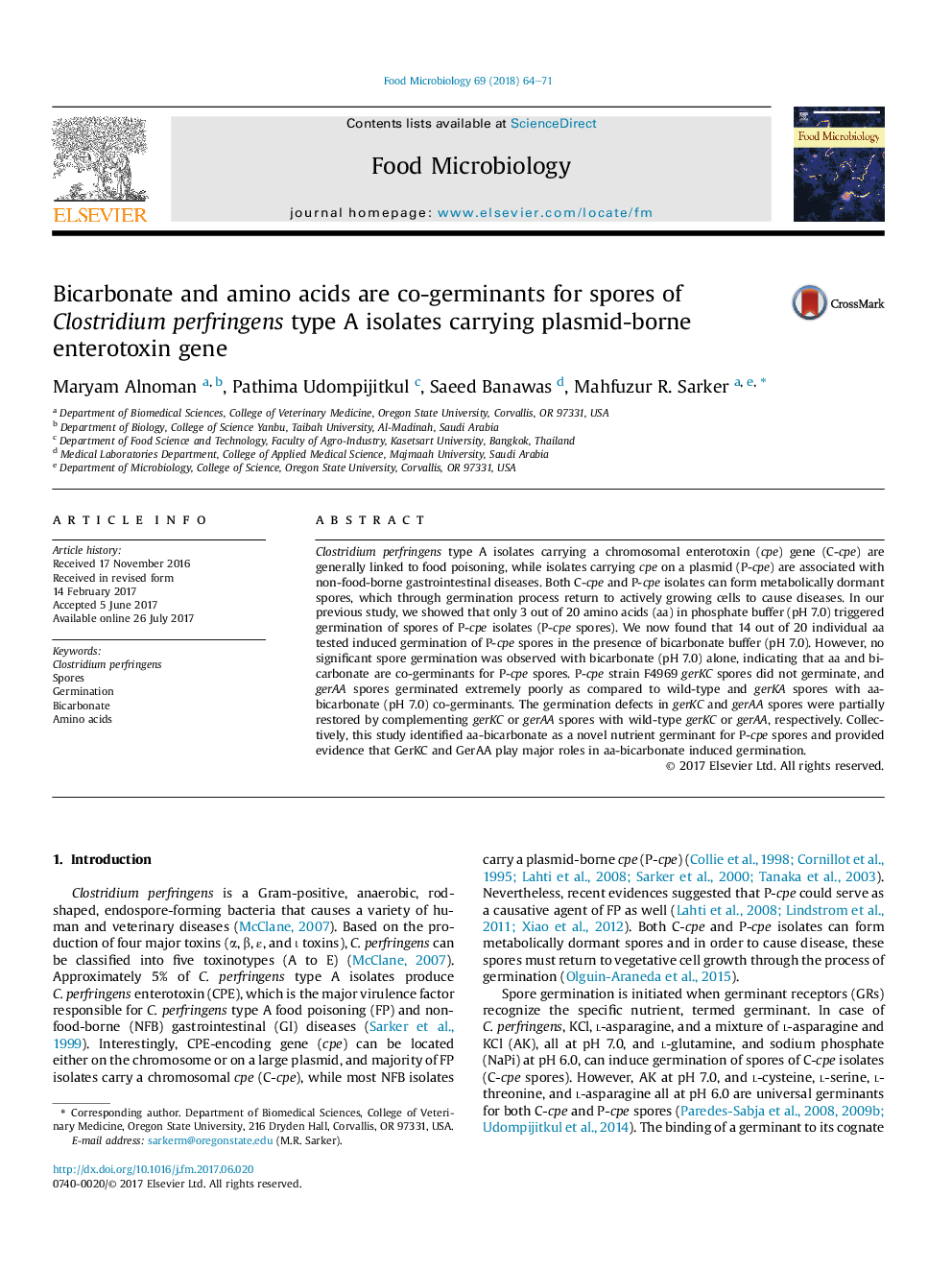| Article ID | Journal | Published Year | Pages | File Type |
|---|---|---|---|---|
| 5740076 | Food Microbiology | 2018 | 8 Pages |
â¢Bicarbonate (pH 7.0) did not induce germination of NFB spores.â¢Most aa induced germination of NFB spores in the presence of bicarbonate (pH 7.0).â¢aa-bicarbonate (pH 7.0) are unique co-germinants for NFB spores.â¢GerKC and GerAA are involved in aa-bicarbonate induced germination of NFB spores.
Clostridium perfringens type A isolates carrying a chromosomal enterotoxin (cpe) gene (C-cpe) are generally linked to food poisoning, while isolates carrying cpe on a plasmid (P-cpe) are associated with non-food-borne gastrointestinal diseases. Both C-cpe and P-cpe isolates can form metabolically dormant spores, which through germination process return to actively growing cells to cause diseases. In our previous study, we showed that only 3 out of 20 amino acids (aa) in phosphate buffer (pH 7.0) triggered germination of spores of P-cpe isolates (P-cpe spores). We now found that 14 out of 20 individual aa tested induced germination of P-cpe spores in the presence of bicarbonate buffer (pH 7.0). However, no significant spore germination was observed with bicarbonate (pH 7.0) alone, indicating that aa and bicarbonate are co-germinants for P-cpe spores. P-cpe strain F4969 gerKC spores did not germinate, and gerAA spores germinated extremely poorly as compared to wild-type and gerKA spores with aa-bicarbonate (pH 7.0) co-germinants. The germination defects in gerKC and gerAA spores were partially restored by complementing gerKC or gerAA spores with wild-type gerKC or gerAA, respectively. Collectively, this study identified aa-bicarbonate as a novel nutrient germinant for P-cpe spores and provided evidence that GerKC and GerAA play major roles in aa-bicarbonate induced germination.
